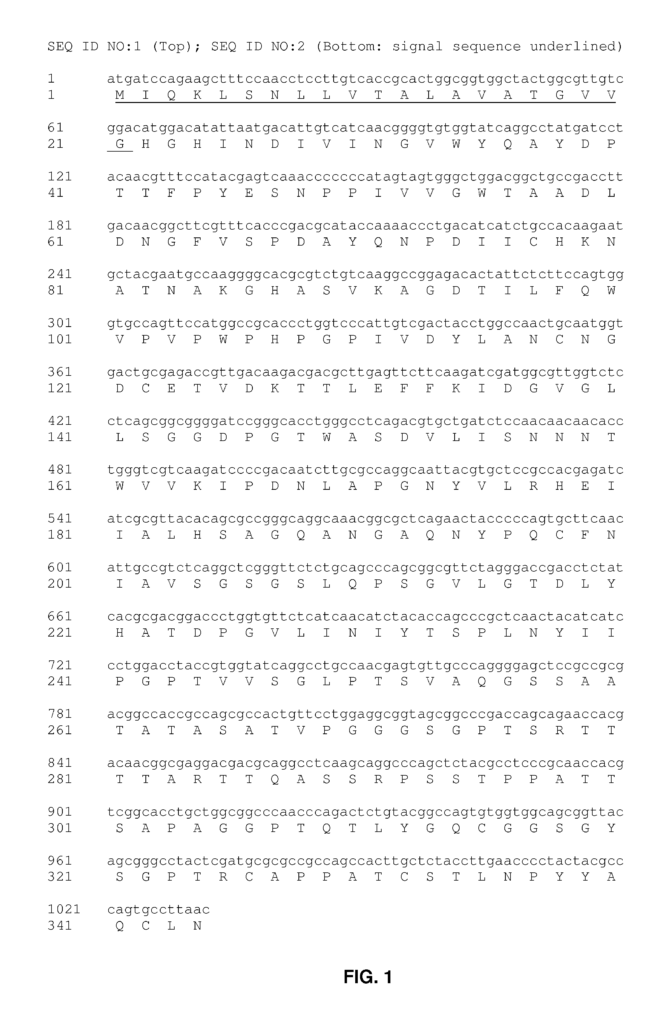Enhanced Variant Enzymes for Advanced Biotechnological Applications
Introduction
Enzymes are the workhorses of biochemical processes across industries, from pharmaceuticals to biofuel production. However, natural enzymes often have limitations in stability, activity, or specificity that can hinder their effectiveness in various applications. Our patented variant enzymes offer an advanced solution to these challenges by providing engineered enzymes with optimized properties tailored to specific industrial or therapeutic needs. With enhanced stability, activity, and substrate specificity, these variant enzymes represent a versatile tool for improving efficiency and performance in a range of fields, from drug development to industrial bioprocessing.
Limits of Natural Enzymes in Biotechnology and Industry
While natural enzymes play a vital role in processes such as drug synthesis, biofuel production, and food processing, their performance can be limited by factors such as temperature sensitivity, pH instability, or poor specificity for the desired substrate. In industrial processes, this can lead to inefficiencies, increased costs, or the need for additional steps to ensure the desired outcome. Similarly, in the pharmaceutical and therapeutic arenas, naturally occurring enzymes may not be suitable for use in drug formulations or therapeutic applications due to these same limitations.
As industries increasingly rely on enzymes for sustainable processes and precision medicine, there is a growing demand for enzymes that perform optimally under specific conditions. Engineered or variant enzymes, designed to meet these demands, can offer enhanced stability, activity, and selectivity, leading to more efficient processes and better outcomes.
Engineered Enzymes for Tailored Biochemical Solutions
Our variant enzymes are designed to overcome the limitations of natural enzymes by optimizing key parameters such as temperature tolerance, pH stability, and catalytic efficiency. These engineered enzymes are ideal for applications where conventional enzymes fall short, providing a reliable, efficient solution for processes that require highly specific enzymatic activity. Whether it’s for enhancing the production of biofuels, improving the efficiency of pharmaceutical manufacturing, or enabling more precise biochemical reactions, our variant enzymes offer flexibility and performance that can be customized to meet a variety of industrial and therapeutic needs.
For industries looking to improve their bioprocessing capabilities, variant enzymes offer a way to reduce costs, increase productivity, and enhance the quality of the final product. In the pharmaceutical space, these enzymes can be used to develop more effective drug therapies or to improve the delivery and action of enzyme-based treatments.
Key Benefits
- Enhanced Stability and Activity: Variant enzymes are designed to perform under more challenging conditions, increasing efficiency.
- Customizable for Specific Applications: Tailored to meet the unique needs of various industries, from pharmaceuticals to biofuels.
- Improved Efficiency: Reduces the need for additional steps or conditions in industrial processes, saving time and costs.
- Broad Applications: Suitable for use in multiple industries, including biotechnology, pharmaceuticals, and agriculture.
Enabling Advanced Enzyme Applications for Industry and Medicine
Licensing this variant enzyme technology provides biotech and pharmaceutical companies with a powerful tool for improving enzyme-based processes. With the ability to customize enzymes for specific conditions and applications, this technology enables more efficient, cost-effective solutions for bioprocessing, drug development, and industrial applications.

- Abstract
- Claims
What is claimed is:
Share
Title
Variant enzymes
Inventor(s)
Nicholai DOUGLAS, Maria FOUKARAKI, Ronaldus Wilhelmus HOMMES, Thijs Kaper, Bradley R. Kelemen, Slavko Kralj, Suzanne E. Lantz, Jonathan K. LassilaIgor Nikolaev, Daniel Esteban Torres-Pazmino, Wilhelmus VAN DER KLEY, Johannes Franciscus Thomas VAN LIESHOUT, Sander Van Stigt Thans
Assignee(s)
Danisco US Inc
Patent #
10479983
Patent Date
November 19, 2019
